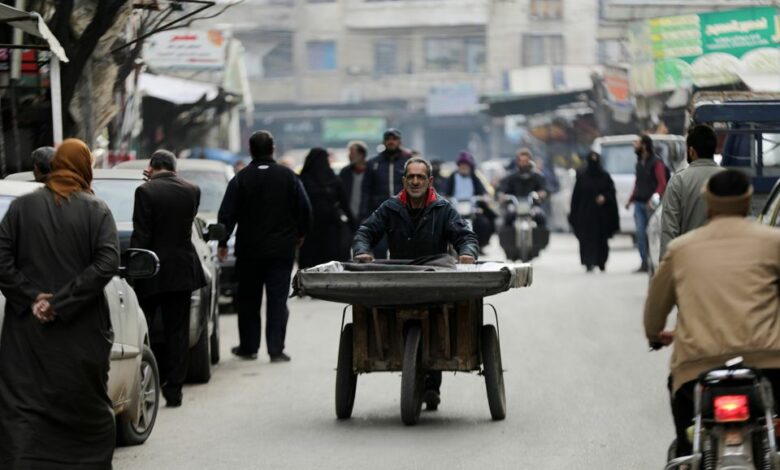
IDLIB, Syria, Dec 9 (Reuters) – Amer Ezzeldin was already struggling to make ends meet in the northwestern Syrian province he fled to during the country’s civil war. Then the value of his earnings started shrinking as an economic crisis spread over the border from Turkey.
The 30-year-old, like many Syrians displaced in Idlib close to that frontier, gets paid in Turkish lira – a currency that has slumped against the U.S. dollar. read more
The 20 lira he earns every day in one of Idlib’s fruit and vegetable markets buys less and less. “I look at my kids and think, I swear to God, if they are craving a banana I no longer have enough to even get them one,” Ezzeldin said.
More than four million people live in Syria’s densely populated opposition-held northwest, including half a million in tents along the Turkish border.
The move to use Turkish money instead of Syrian pounds started gaining momentum last year, a sign of Ankara’s growing influence in a region seized by Turkish troops and their Syrian rebel allies more than four years ago from Islamic State fighters.
Most Syrians were happy to escape the fluctuations of their local currency at the time, taking comfort in the relative stability of the lira.
But the strategy has now backfired amid a selloff in the lira driven by aggressive monetary easing that Turkish President Tayyip Erdogan had sought, but that economists and opposition politicians say is reckless.
In Turkey, the market crash has helped push inflation above 21%, which in turn has hurt Erdogan’s opinion polls ahead of elections set for 2023. read more
“MAJOR LOSSES”
In Idlib, prices of basic goods such as food and fuel have been on the rise in the past month with staples such as rice and tea almost doubling in a region mostly housing displaced people and where living conditions are already dire.
“In only one morning we incurred major losses,” Hassan al-Khalaf, who owns al-Manar currency exchange bureau in Idlib, Syria’s last rebel stronghold, said.
“If a wholesaler came to ask us about the exchange price we gave them one and then by the time they came to exchange money we give them another one … it is incredible that it has slumped that much,” he added.
Khalaf said most exchange offices were now having to factor in future slides and charge a bit more than the official rate, transferring the burden to the end consumer.
Abu Akram, who makes a living selling toys on a cart, says no one can afford to buy much these days.
“There is no movement, no sales,” he said. “What was once for 5 lira is now for 10 or 12.”
Ezzedlin, who fled to Idlib to escape fighting around his home in the western city of Homs seven years ago, said his daily wages were now worth around $1.50 – barely enough to buy basics.
“We started wishing for war as death is better than this.”




